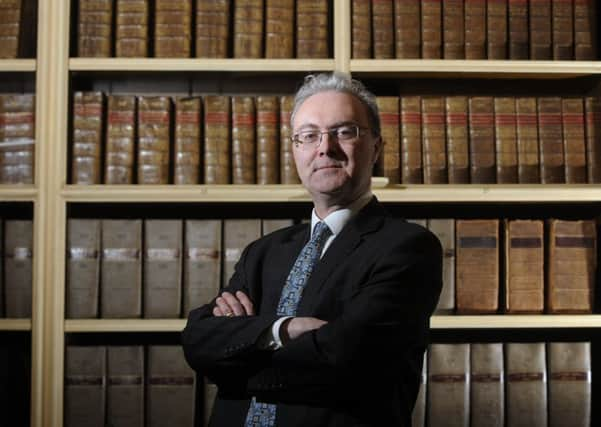Scotland entitled to Brexit '˜voice', Supreme Court told


Lord Advocate James Wolffe QC said the Scottish Government was not asking for a veto by intervening in the case, but said MSPs were entitled to a vote before the triggering of Article 50 of the Lisbon Treaty, which starts the two-year process of negotiating the UK’s withdrawal from the EU.
In submissions to 11 justices in the UK’s highest court, Mr Wolffe said whether Scotland consented is “a matter of constitutional significance”. He argued EU law provisions would become redundant following withdrawal from the EU with a whole series of effects on Scotland’s devolved legislative powers.
Advertisement
Hide AdAdvertisement
Hide AdThe Lord Advocate said: “Ultimately the approach I invite the court to take reflects the proper institutional roles of the UK Parliament and the Scottish Parliament, in a context where the Scottish Parliament has wide legislative competence and the effect of withdrawal from EU would be significant with regard to devolved matters.
“In that context it is constitutionally relevant and significant to know whether the Scottish Parliament consents to those effects. It is then for the UK Parliament to decide, in light of the views of the devolved administration, to decide what to do.”
Mr Wolffe argued that giving notice under Article 50 would require an Act of Parliament at Westminster and a legislative consent motion from Holyrood.
And he said that the Sewel Convention, which says the UK government should consult Holyrood when legislating on devolved matters, was “part of the law of the land” because it was referred to in the Scotland Act.
Advertisement
Hide AdAdvertisement
Hide Ad“If the UK is not going to do that, then it has to be Scotland observing them.”
The court case continues as MPs last night backed the government to formally start the process of EU withdrawl process no later than the end of March 2017 but only if it publishes its Brexit plan first.
The Prime Minister won a symbolic victory in the Commons after MPs voted in favour of a government motion not to delay Brexit.
A majority of 373 MPs voted in support of Ms May’s timeline to trigger Article 50 by March 31 2017.
Advertisement
Hide AdAdvertisement
Hide AdJust 89 MPs vote against the government, including the SNP and Lib Dems, 23 Labour rebels and Tory MP Ken Clarke.
In a second Commons vote, MPs overwhelmingly backed a Labour amendment requiring the government to first publish its Brexit plan before formal talks begin.
Mr Clarke voted against it, joined by nine Labour MPs, 51 SNP MPs, Green Party MP Caroline Lucas and five Liberal Democrats, among others.
The Lord Advocate will continue submissions at the Supreme Court today, the last day of the hearing.